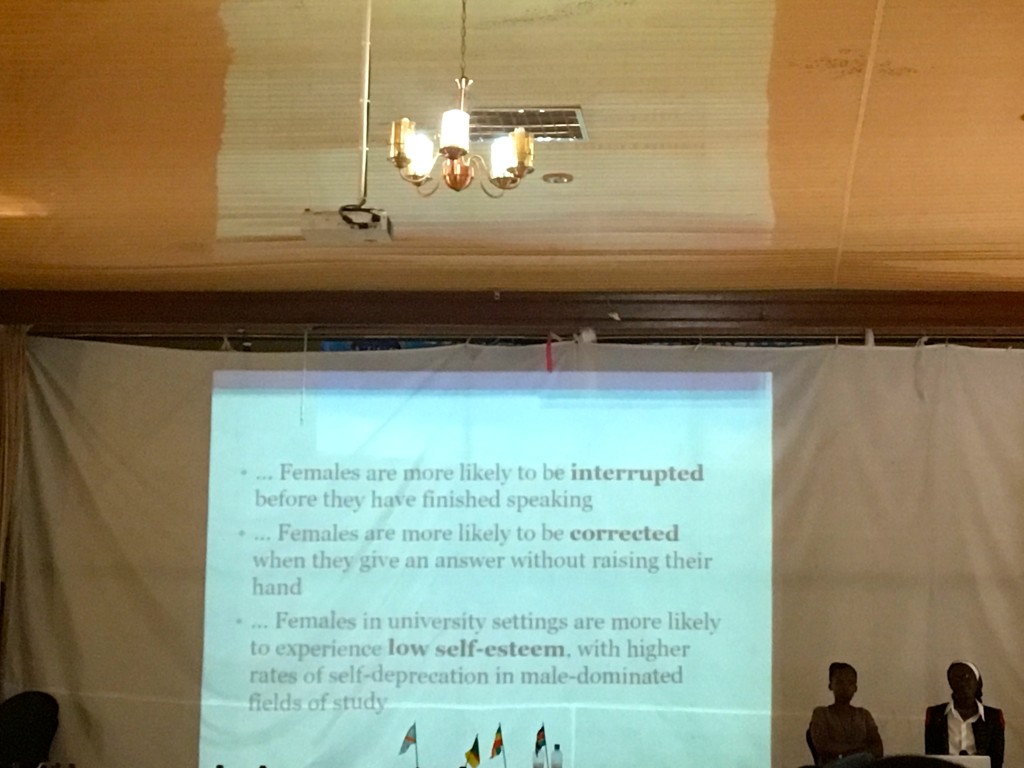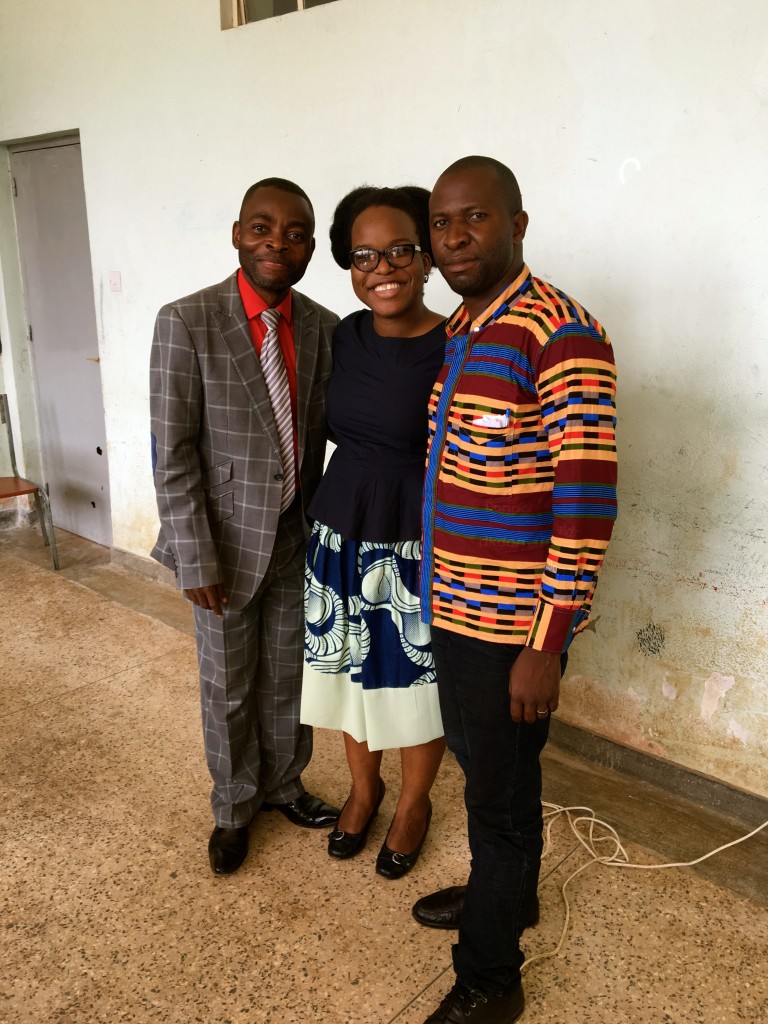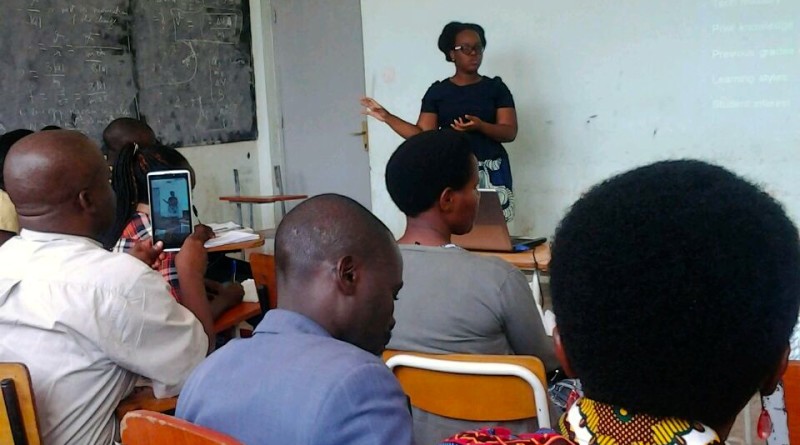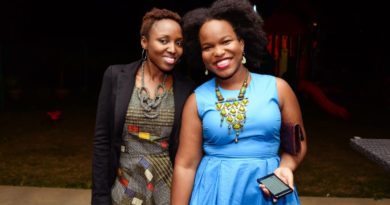Lessons Learned From the 2016 ATER Conference
A couple Fridays ago, I had the pleasure of being a presenter at Association of Teachers in Rwanda’s Annual Conference. ATER’s mission is to “advance teacher-driven professional development in English language teaching and learning for teachers of English in Rwanda.” This work is particularly important given that Rwanda abruptly made English an official language, and language of instruction in 2008/2009, challenging teachers to adapt very quickly to an Anglophone education system. Some of the negative impact was alleviated by hiring Ugandan teacher mentors, but there’s still a lot of work to be done before all local teachers are fluent enough to teach English as a second language.
One of my takeaways about working in education has been the importance of teamwork. As a lawyer, there were many instances where I was able to fly solo and still excel. Teaching is more of a constant exercise in peer review and collaboration. So the good thing about conferences like these, is even though I was presenting, I also got to learn a lot from my colleagues in the profession. The ATER conference gathered over 200 teachers for two days of professional development, networking and collaboration.

Below are three of my main takeaways:
Rwandan Teachers Now Have a Statutory Right to Professional Development
I am obsessed with the concept of lifelong learning, and I never feel like I know enough of anything. I think one the things that makes employers great is the willingness to coach, mentor, and support employees to their utmost potential. As employees, we are held to high standards in terms of the skills we must bring to the table. Unfortunately, many of us are not in a position to demand adequate ongoing training to propel our growth. And given that local teacher salaries can be as low as $50 USD a month, it is important to facilitate training for teachers, as even the most ambitious may not be able to afford continuing education opportunities on their own. To that end, the Rwandan Ministry of Education has incorporated the right to professional development in its new statutes. This is certainly a step in the right direction.
We Still Have a Long Way go to Make Girls Feel Equal in the Classroom

One of the biggest cultural shocks for me after moving to Rwanda is the amount of time and effort spent addressing issues affecting women. As an educator, I am constantly grappling with the fact that boys significantly outperform girls here. This is a stark contrast to Jamaica where girls seem to dominate every academic activity. For example in 2010, the ratio of bachelor’s degrees earned by Rwandan men vs. women was 2:1, as was the ration of men to women at the government universities. This is essentially the opposite of Jamaica where enrollment at the University of West Indies, Mona Campus (our main university) is about 1:2, men:women.
I imagine these stats must be better six years later, but the data is telling. Rwanda is definitely an international leader in gender equity, as indicated by the noteworthy dominance of women in parliament. But as the President himself noted, the parliamentary success is not enough, and more work must be done in other sectors.
One of the closing sessions of the conference was a panel discussion featuring recent secondary school graduates discussing their experiences as women in the classroom. All of the students spoke of instances were they were disregarded in, or excluded from, academic spaces because they were interested in topics that were not ‘feminine’. Even though I am already mindful to incorporate gender equity in my daily pedagogical approach, it was a necessary reminder that as much we have worked on this issue, there is more to be done.
Regional Integration Can Have a Meaningful Impact on the Education Sector

Though discussions about the East African Community usually centre around trade and economic benefits, there are numerous benefits to the education sector as well. ATER conference attendees came from over seven countries. Most of the foreign teachers were from Uganda and the DRC. Watching all the multinational conversations and sharing of best practices reminded me of the value of open borders and cultural exchange. It’s also comforting to know that educators in other countries are facing the same problems as I do in my classroom, and we can all learn from each other’s diverse approaches.
If you work in the education sector in Rwanda, I encourage you to check out ATER’s website, and become involved in their communities of practice. And for my educator readers, my presentation was entitled, Using Differentiated Instruction to Create a Student-Centered Classroom. You can download it from dropbox here, and take a look at these three links if that’s a topic that interests you:
Fellow education nerds, feel free to leave me a comment or email if you want to chat about other fun education issues.











